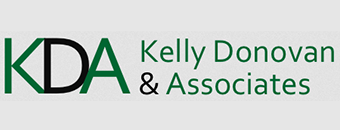8 unexpected benefits of executive resume writing
Traditionally, the purpose of a resume has been to secure an interview. Today, the advantages extend beyond simply landing interviews–and there are also some bonuses to going through the resume writing process properly that don’t have anything to do with the resume itself!
5 advantages of a professionally written resume (beyond simply landing interviews!):
- It gives your interviewer a road map for a successful interview. Interviewers, after all, will typically have the resume in front of them during the interview.
- It positions you for the level of salary you are seeking. A blah, unbranded, poorly written resume that doesn’t highlight your accomplishments in the most impressive way possible won’t position you for an increase in salary.(Thanks to renowned career guru Don Orlando for his ideas that influenced #1 and #2 above!)
- Even if the hiring manager knows you and wants to hire you, if it’s a larger organization, he still needs to convince colleagues and his boss that you’re the one for the job.Hiring has changed. At larger companies, there are usually several people involved in the hiring decision nowadays besides the hiring manager (hiring manager = the executive you would be reporting to). If another candidate looks incredible on paper and you don’t, the other stakeholders who don’t have prior knowledge of you and your work might be more impressed with the other candidate.Let’s face it, the hiring manager’s life will be more difficult if he has to explain to HR why he wants to hire a candidate none of the other people favor, or if his boss isn’t convinced the candidate is the best choice. Relationships are the #1 key to awesome executive jobs; but don’t assume that the relationship alone is enough. The hiring manager’s life will be easier if your resume and interview performance both knock it out of the park, and he doesn’t need to work hard to convince anyone that you’re “the one.”
I once had a client hire me even though the hiring manager wanted to hire him. The hiring manager said he needed a great resume tailored to the position in question so he could convince his boss the candidate was the right fit.
- The resume is written documentation that will help sell you even after you walk out the door after the interview.
After interviewing multiple people, interviewers often get confused and can’t remember which one was which. They may stare at a resume afterwards saying, “Wait a minute, was he the one I liked, or he was the one with the weird handlebar mustache who was rude to my secretary?”Leaving behind an impressive resume (and perhaps other leave-behind materials), and then following up with a compelling post-interview thank-you/follow-up letter, will help your interviewer remember you and help “sell” you long after you’re gone. - And, finally, your professionally written resume is like an insurance policy in case your new job doesn’t work out.I’ve had clients who went to work at jobs that ended with an unexpectedly early departure. Though unlikely, there are myriad reasons why you might lose a job or decide to quit after just a few weeks or months. Job security is a thing of the past. Layoffs are common nowadays, and managing your brand and image with an effective executive resume and LinkedIn profile should be an ongoing effort.
3 positive side effects of professional resume writing:
- It helps you prepare for job interviews and networking conversations because it forces you to identify your personal brand, specific accomplishments and success stories, and the key messages you need to get across to your target audience.
- It boosts your confidence. Clients report feeling great after seeing their resume draft–especially executives who haven’t had their resume updated in several years, and those who had previously written their own resume or used a lower caliber of resume writer.
- It provides the foundation for a strong LinkedIn profile, and LinkedIn is an important networking and brand management tool for all professionals. LinkedIn is not something to only think about when you’re job searching and ignore when you’re employed. If you want to be continuously employed and always in demand, you want to be effective in managing your brand and online presence. This begins with LinkedIn.
This article originally appeared on KellyDonovan.com.



